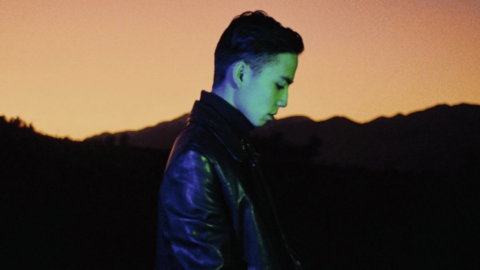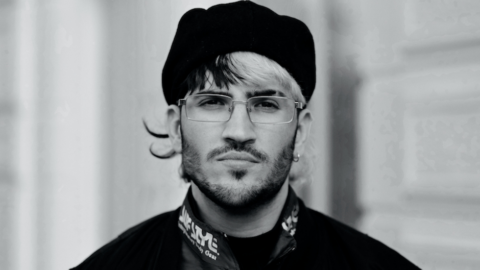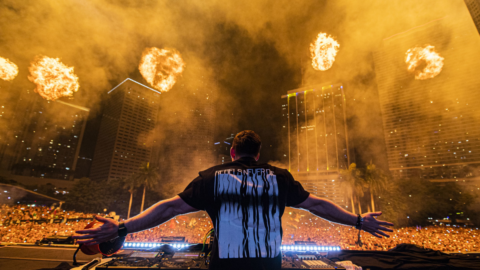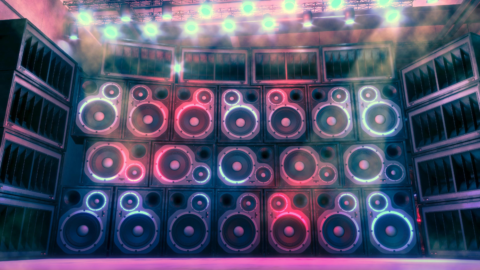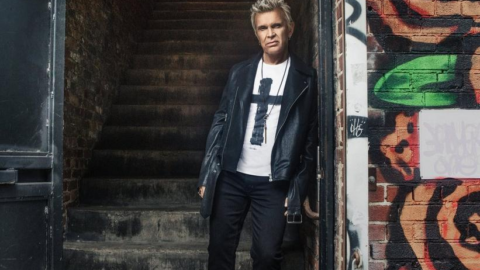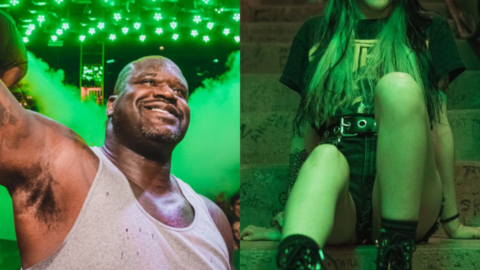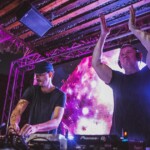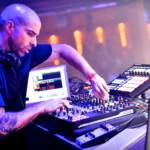Ever since the Russian army invaded Ukraine, a cultural boycott of Russian artists has spread across the West. Eurovision banned Russian artists; the Cannes Film Festival announced it would not welcome official Russian delegations. The Metropolitan Opera cut ties with one of its biggest stars, the Russian soprano Anna Netrebko, while the Russian conductor Valery Gergiev was dropped from multiple performances in Europe and America.
To some, these cultural boycotts are acts of resistance and necessary deployments of soft power; Ukrainian President Volodymyr Zelensky even praised them as a worthwhile tactic. To others, however, they whiff of McCarthyist nationalism, or seem like performative stunts that target the wrong people. As debates rage, orchestra boards, festival directors, and venue bookers have been forced to make difficult decisions that serve as cultural proxy battles for a very real war.
The latest artist at the center of this maelstrom is the Russian DJ Nina Kraviz. Kraviz is arguably the most famous Russian pop musician on a global scale: over the last decade, she’s built an ardent following with 1.8 million Instagram followers, performed on Coachella’s mainstage, and collaborated with the likes of Grimes and St. Vincent. She sits close to the center of the global electronic music world, and was named Mixmag’s 2017 DJ of the Year.
She has also, over the years, left a social media trail of support for Russian President Vladimir Putin. After the war began in February, she made one vague post about “peace” before falling silent on social media for months, which prompted the criticism of those who feel that she should use her platform as one of Russia’s foremost cultural exports. In May, the Rotterdam music company Clone Distribution cut ties with Kraviz’s label, Trip Recordings, “due to different views on ethical and moral matters.” And TIME collected responses from several prominent members of the electronic music scenes in Ukraine and Russia—including the Ukrainian DJ Nastia and the Russian DJ Buttechno—who criticized Kraviz’s silence and asked her publicly to clarify her ties to Putin and to refute the war.
Kraviz, however, is still booked for many music festivals across Europe and North America this spring and summer. Her defenders argue that she has nothing to do with the war and that freedom of speech includes the freedom to say nothing at all.
A representative for Kraviz did not respond to a request for comment prior to this story’s original publication on May 13.
Update: On May 17, following the publication of this story, Kraviz released a statement on Instagram addressing the controversy. “As a person, musician and artist I’m deeply moved by what’s happening in the world. It’s appalling what my country’s relations have become,” she wrote as part of a seven-paragraph statement. “I am against all forms of violence. I am praying for peace. It pains me to see innocent people die.”
In March, President Zelensky was asked by Russian journalists about the boycott of Russian cultural figures across the world. With regards to athletes in particular, Zelensky advocated for their boycotting, saying: “Unfortunately, they are involved. They might not fully feel it themselves, but they have to understand that they’re an instrument for the country’s international image…Understand when people are dying there [in Ukraine], you should at least be uncomfortable.”
In an exclusive statement to TIME in May, Zelensky praised the Russian artists criticizing the war, including Liya Akhedzhakova and Maxim Galkin, and called for others like Kraviz to do the same. “It’s their country, and they can’t keep silent. They say what they think, and I believe that’s the right thing to do,” he said. “I’m not advocating for a split in society. I’m advocating for those people to unite with the normal, civilized people of Europe. These are the people who see reality. Their eyes are open. These people are open to seeing the truth, to assess and analyze what is happening.”
Read More: Inside Zelensky’s World
Members of the Ukrainian electronic music scene, which has grown dramatically in the last few years, shared Zelensky’s sentiment. In March, more than 100 entities from the scene, including labels, festivals, and artists, signed an open letter calling for music organizers to cut ties with Russian artists who did not actively resist Putin’s government. “If you create a space for Russian artists, you support an aggressor country, which is doing so many awful things,” Maya Baklanova, a Ukrainian music journalist who helped co-write the letter, told TIME. “Russian artists have shown their ignorance and their silence. But if you have support from people, then you should be responsible about your messages.”
The Ukrainian DJ Nastia adds that electronic music culture in particular has political roots, and that it stands for values that contradict Russia’s invasion of Ukraine. “Rave culture was always about freedom, human rights. We can see that from how the Detroit scene was a protest to what was going on in the U.S. to artists at the Berlin Wall,” she tells TIME. “Innocent people are dying. But people don’t want the responsibility, and they want to stay away.”
Many Russian artists have taken up the Ukrainian cause. The DJ Buttechno, the rapper Oxxxymiron, and many others have used their platform to raise money and highlight atrocities, especially to their Russian audiences who may not have access to the same sources of information. But speaking up also carries a high risk: the St. Petersburg artist Alexandra Skochilenko, for example, faces up to 10 years in prison for protesting the war.
And artists are not just facing threats from the Russian government. In fact, some worry that anti-Russian boycotts are turning into a more pervasive and sinister form of Russophobia. In Los Angeles, the record store owner DJ Ed Karapetyan was hounded by demand to stop selling records made by Russian artists altogether, and told the LA Times that his landlord was trying to evict him because of his nationality. A Russian restaurant in Washington, D.C., was vandalized in February.
Kraviz, in contrast, is receiving criticism not just for her nationality but for her political history. In her time in the spotlight, she has mostly tried to avoid politics: “I think you should only speak out on subjects that you simply cannot remain silent on,” she said in a 2013 interview. “People often ask me to comment on the situation in Russia and the Pussy Riot case—I always decline.” (Members of the band Pussy Riot were jailed in 2012 for staging protests in Russia; one of the band’s members, Maria Alyokhina, escaped from the country last month by disguising herself as a food courier.)
But Kraviz has also shown some tacit support for Putin over the years. In April 2014, a month after Russia’s annexation of Crimea, she posted a photo on Instagram of herself smiling and holding a cardboard cut-out of Putin holding a gun with a flower coming out of the barrel. (A representative for Kraviz told TIME after this article’s publication that a flower coming out of a gun is a symbol of peace and added, “We would suggest that you contact the festival to ask why they supplied these cut-outs.”) In 2016, Kraviz tweeted a meme of Putin at a rave, writing, “Don’t underestimate a Russki.” (Kraviz’s representative wrote that “The text and meme of this tweet had nothing to do with each other.)
In a 2011 documentary on Mikhail Khodorkovsky, the Russian businessman and one of Putin’s rivals, she criticized the filmmaker’s sympathies for his subject, calling it a “freak PR action for the guilty person.” Kraviz also once dismissed the allegation that Stalin killed 20 million Soviets as “propagandist wiki info” on Twitter; the figure has been supported by many historians.
When Russia invaded Ukraine in late February, Kraviz posted a video of herself writing “peace!” in Russian. But the short, vague message was criticized by some on Instagram, most notably by the Ukrainian DJ Nastia, who felt the message only underscored her support of Putin.
As Kraviz continued her public silence—she is normally a frequent poster—Nastia and others became incensed and began urging electronic music festivals not to book her. (Nastia says she used to be friends with Kraviz before they fell out for personal reasons several years ago.)
“Music always been in politics with sexism, racism, human rights, crises – don’t tell me we have nothing to do with it,” Nastia wrote on Instagram. “I am calling her out because she is a public person and for such a big media person you can’t stay silent for 2 month and doing your business like nothing happened. You are responsible for the power that people gave you.”
Baklanova, too, began emailing festival and concert promoters like the Pollerwiesen Festival in Germany, calling on them to replace Russian artists who have remained silent on the war, like Kraviz, with artists from war-torn regions, including Ukraine, Syria, and Palestine. “Music and clubs is a place of unity… But also it’s a place of radical ideas and protest,” she wrote. “That’s why cutting down Russian artists is one of the smallest ways of making Russia and its citizens face its crime and be accountable.”
In early May, the Rotterdam music company Clone Distribution announced it would end its agreement with Kraviz’s record label Trip Recordings. In an email to TIME, Clone founder Serge Verschuur explained his decision, writing: “The murdering, looting, raping and destruction in the name of Russia continues while Nina is trying to continue her life as if nothing happened and while not showing any remorse for her Pro-Putin stand and her CCCP/USSR flattery…the disinterest and the toxic positivity in the techno scene is not what we, Clone Records, represent. The house and techno scene stood up for minorities, for the less privileged, for the oppressed. It is built by minorities and oppressed people.”
The Russian-born DJ Pavel Milyakov, who is better known by his stage name Buttecnho and who released music on Kraviz’s label Trip in 2019, criticized Kraviz’s silence in an email to TIME. “Russian artists (especially the ones with a big audience) should accept their collective responsibility and also admit the imperialistic & colonizing approach of Russian culture and politics throughout Russian history,” he wrote. “Being silent or making neutral posts with just ‘PEACE’ word—is the same support of Russian regime and hence support Russian invasion, support killings… of Ukrainian people.” He says he and his wife, who is Ukrainian, left their home in Russia at the start of the war.
The English DJ Dave Clarke also spoke out against Kraviz on Instagram. In an email to TIME, he stressed that there’s a difference between an outright boycott and holding someone accountable for their past views. “To ban sports people who have not expressed any political stance sets a dangerous precedent,” he wrote. “But any person that supports such a war needs to be held accountable for such beliefs. Any person that was looking to take advantage of the ‘annexation’ of Crimea also should come under that umbrella.”
Kraviz is currently on a lengthy touring schedule, with festival dates booked across the U.S. and Europe. Nastia’s comments, meanwhile, sparked their own backlash, with some on social media defending Kraviz. “I really think this is super unfair for you to single Nina out,” wrote DJ Rebekah. “Freedom of speech is also a freedom to not use it if you don’t feel comfortable.”
Another DJ, Danny Tenaglia, alluded to the risks of Kraviz speaking out: “I also can’t imagine how hard this is for a high profile figure like Nina to come out against Putin because she will definitely become a target and God only knows what might happen to her and her innocent relatives,” he wrote. (It’s unclear if Kraviz still lives in Moscow as she did as late as 2018, but she live-streamed from the city during the pandemic and her label Trip is still based there.)
Nastia argues that the electronic music scene is protecting Kraviz for financial reasons. “Everyone wants to stay comfortable in their zone, keep the business running,” she says. She also says that due to the youth of much of the electronic audience compared to other genres, it’s been tough to get people to care. “Classical is more for adults and more mature people, who have their position and opinion about things. Electronic dance music is more about having fun. They don’t want to think about anything: they want to stay away from these kinds of topics,” she says.
Both Nastia and Kraviz are booked for the upcoming Movement Music Festival in Detroit. Nastia says that initially, she told the festival’s organizer that she wanted to withdraw from the show as well as other festivals that featured “Russian artists who haven’t made their statement about war in Ukraine.” But ultimately she decided to play the festival in order to represent her country. “I am the only one to represent my country at this festival. More important to show up and raise the Ukrainian flag in the DJ booth,” she wrote in a message.
A representative for the Movement Festival did not respond to a request for comment.
Correction, May 23. The original version of this story misstated the status of a 2014 Instagram photo of Nina Kraviz with a cardboard cutout of Vladimir Putin. It has not been deleted, it is still online.
Contact us at [email protected].



